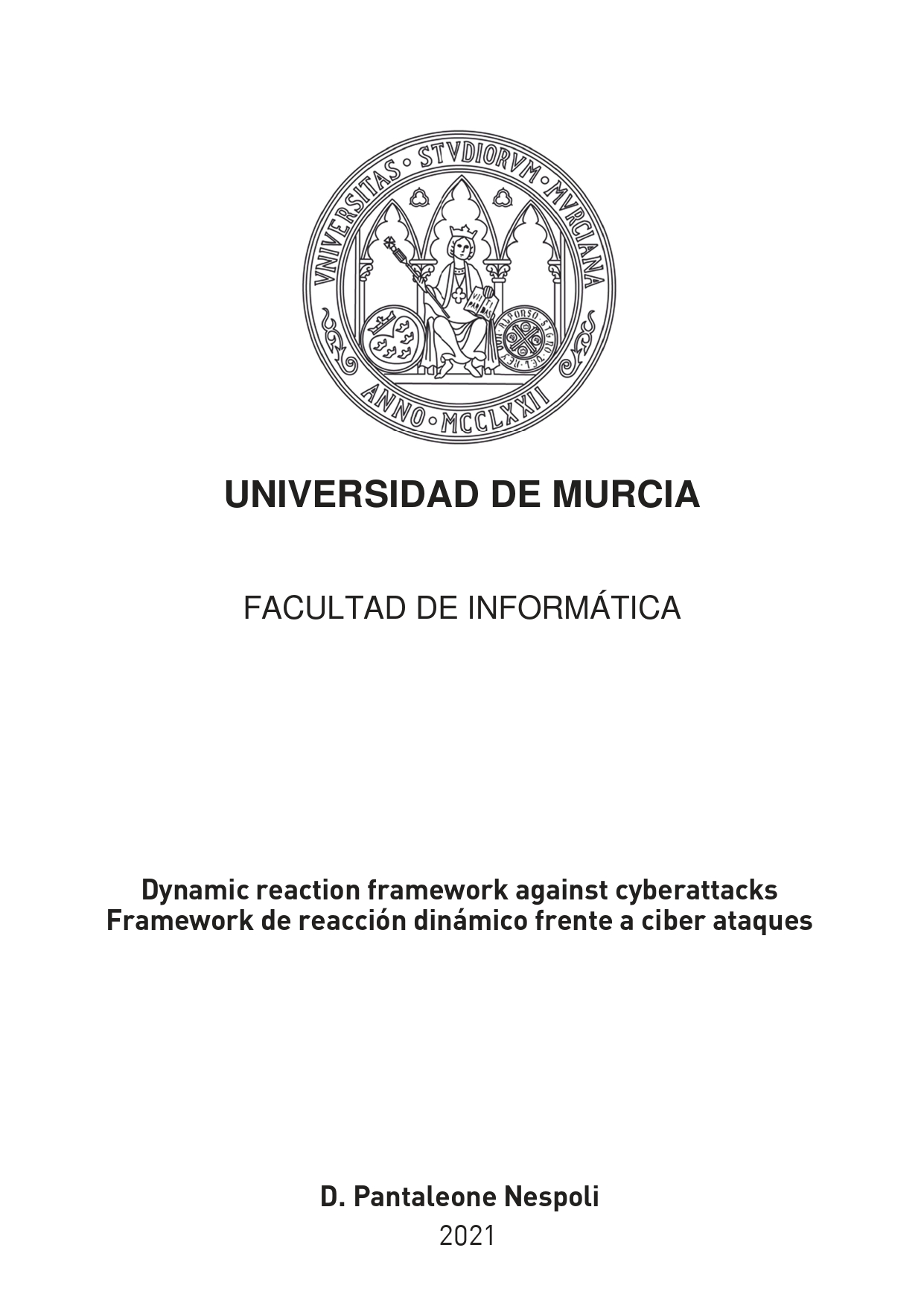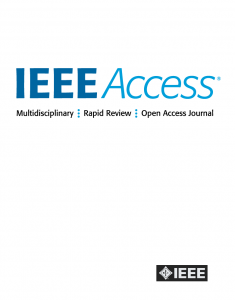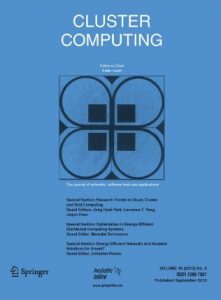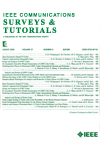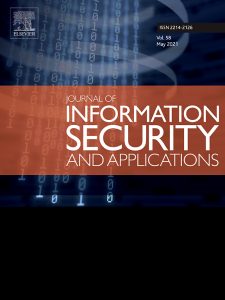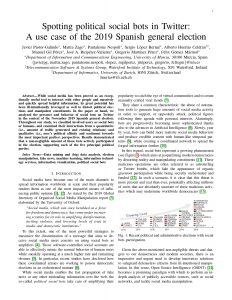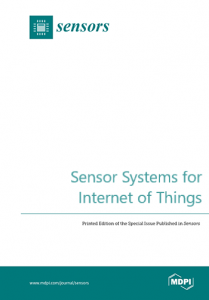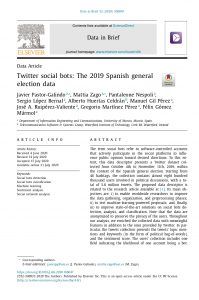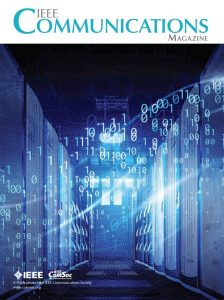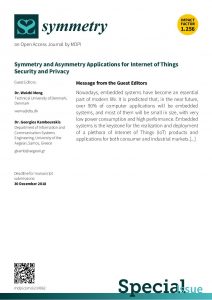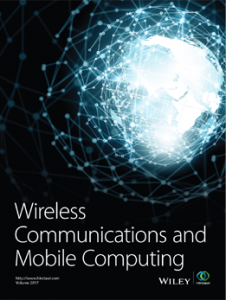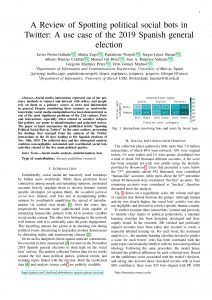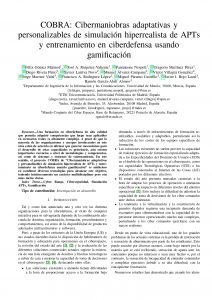his webpage contains all the information related to the European PhD Thesis titled «Dynamic reaction framework against cyber attacks«, authored by Pantaleone Nespoli and supervised by Félix Gómez Mármol (University of Murcia, Spain).
Dynamic reaction framework against cyber attacks
PhD Thesis Information
Advisor:
Defense Date: September 7, 2021
Place: Faculty of Computer Science, University of Murcia
International experts supporting the PhD:
- Dr. Jose María Alcaraz Calero, University of the West of Scotland, UK
- Dr. Daniel Orlando Díaz López, Universidad del Rosario, Colombia
Examining board:
- Dr. Joaquín García Alfaro, Telecom SudParis, France
- Dr. Gregorio Martínez Pérez, University of Murcia, Spain
- Dr. Víctor A. Villagrá González, Polytechnic University of Madrid, Spain
PhD Thesis Publications
Journals and Magazines
Further Publications
Journals and Magazines
Conferences
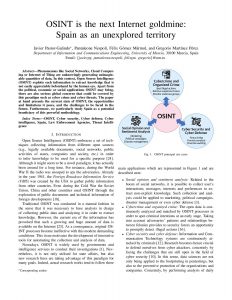
OSINT is the next Internet goldmine: Spain as an unexplored territory
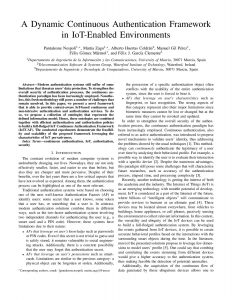
A Dynamic Continuous Authentication Framework in IoT-Enabled Environments
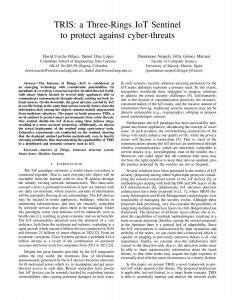
TRIS: a Three-Rings IoT Sentinel to protect against cyber-threats
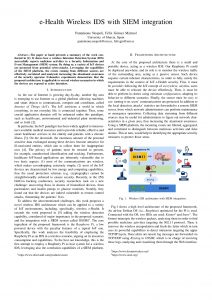
e-Health Wireless IDS with SIEM integration
Research Projects
-
Objective
PALANTIR aims at bridging the gap between large enterprises and SMEs/MEs, by providing multi-layered, infrastructure-wide threat monitoring, cyber-resiliency and knowledge sharing in a heterogeneous ecosystem, while at the same time being able to market these services to third parties in the form of Security-as-a-service (SECaaS). PALANTIR will implement a coherent privacy assurance, data protection, incident detection and recovery framework, focusing on the case of highly dynamic service-oriented systems and networks, taking advantage of their inherent programmability features and abstractions. PALANTIR will also focus on cyber-resiliency leveraging the features of service-oriented systems key building features by a) applying and exploiting Network Functions Virtualization (NFV) and Software-Defined Networking (SDN) technologies; b) considering emerging paradigms such as the application of scalable artificial Intelligence, standardization and threat-sharing techniques to risk analysis, network operation, monitoring and management and c) ensuring the SME’s compliance with the relevant data privacy and protection regulations in the data breach age, implementing the «Privacy by Default» and the «Privacy by Design» principles on how personal data is collected, used, transferred and stored between 3rd party businesses and entities. The end result will be an evolving, expandable and unified framework, tailored to the individual needs of every SME and ME, reducing the complexity level of usual security tools while still being affordable and thus attractive for adoption.
https://cordis.europa.eu/project/id/883335
Coordinator
- DBC Europe (Belgium)
Partners
- Universidad de Murcia (Spain)
- Fundació i2CAT (Spain)
- Telefónica Investigación y Desarrollo (Spain)
- Infili Technologies (Greece)
- Space Hellas (Greece)
- Hewlett-Packard Limited (UK)
- NEC Laboratories Europe (Germany)
- Politecnico di Torino (Italy)
- Incites Consulting (Luxembourg)
- National Center for Scientific Research Demokritos (Greece)
- Orion Innovations (Greece)
- Ubitech (Cyprus)
- Sfera IT (Slovenia)
- Helenic Army Academy (Greece)
-
Objective
The SELFNET project designs and implements an autonomic network management framework to achieve self-organizing capabilities in managing network infrastructures by automatically detecting and mitigating a range of common network problems that are currently still being manually addressed by network operators, thereby significantly reducing operational costs and improving user experience.
http://cordis.europa.eu/project/rcn/197349_en.html
Coordinator
- Eurescom Gmbh (Germany)
Partners
- Universidad de Murcia (Spain)
- PT Inovaçao e Sistemas SA (Portugal)
- Deutsches Forschungszentrum fuer Kuenstliche Intelligenz Gmbh (Germany)
- University of West of Scotland (United Kingdom)
- Universidad Complutense de Madrid (Spain)
- Nextworks (Italy)
- Innoroute Gmbh (Germany)
- Alvarion Technologies Ltd (Israel)
- Ubiwhere LDA (Portugal)
- PROEF, SGPS SA (Portugal)
- Creative Systems Engineering (Greece)
-
En este proyecto se desarrollarán módulos de simulación de tráfico y topologías de red, y de amenazas avanzadas persistentes (APTs) hiperrealistas que simulen de forma efectiva escenarios realistas. En segundo lugar, se utilizará un Cyber Range para integrar dichos módulos de simulación, con un módulo que permita el desarrollo de escenarios de cibermaniobras plantilla parametrizables y aleatorizables, que otorgue flexibilidad al instructor y escenarios desafiantes para el estudiante. En tercer lugar, se integrará al Cyber Range elementos de dos tecnologías educativas en alce actualmente, como la gamificación y el aprendizaje adaptivo, de manera que el proceso de aprendizaje sea más motivante y adaptado. Por último, se desarrollará un módulo de evaluación de competencias en ciberdefensa en función de la interacción de los estudiantes con las cibermaniobras. Las soluciones desarrolladas en este proyecto conformarán módulos independientes y un entorno de trabajo global, que tenga la capacidad de mejorar el entrenamiento en ciberdefensa con simulaciones hiperrealistas en escenarios que puedan variar en cada iteración y adaptarse dinámicamente a las características del estudiante, así como mejorar la motivación de los estudiantes para aprender en este entorno.
-
The COSMOS project, funded by a Leonardo Grant awarded by the BBVA Foundation, intends to develop novel and innovative solutions aimed at providing sophisticated protection mechanisms within the context of the Internet of Things (IoT). In this regard, its overall and main goal lies in the development of the so-called collaborative, seamless and adaptive sentinels. Such sentinels would seamlessly sense their environment, automatically identifying all those devices in the nearby to be potentially protected. Once the appropriate devices have been selected, the sentinels would adapt themselves in order to become experts in the protection of such specific devices against cyber-attacks. Last but not least, in case a new device to be protected comes into play and the assigned sentinel does not know how to protect it, the sentinel would ask for such protection knowledge to other collaborative sentinels in the community.
Furthermore, the IoT sentinels would not only focus on detecting intrusions, but rather cover the four phases of the cyberdefense, namley: prevention, detection, reaction and forensics.
Materialized in two different forms (dedicated and virtual), the sentinels in the context of COSMOS would operate in a Smart Home scenario, where a number of heterogeneous devices can be found (PCs, laptops, smartphones, electrical appliances, wearables, etc.).

